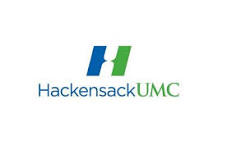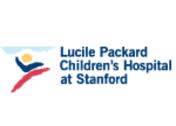Rituximab and LMP-Specific T-Cells in Treating Pediatric Solid Organ Recipients With EBV-Positive, CD20-Positive Post-Transplant Lymphoproliferative Disorder
| Status: | Recruiting |
|---|---|
| Conditions: | Hematology |
| Therapuetic Areas: | Hematology |
| Healthy: | No |
| Age Range: | Any - 29 |
| Updated: | 2/24/2019 |
| Start Date: | March 6, 2017 |
| End Date: | December 31, 2021 |
A Pilot Study of Rituximab (RTX) and Third Party Latent Membrane Protein (LMP)-Specific Cytotoxic T-Lymphocytes (LMP-TC) in Pediatric Solid Organ Recipients (SOT) With EBV-Positive CD20-Positive Post-Transplant Lymphoproliferative Disease (PTLD)
This pilot phase II trial studies how well rituximab and latent membrane protein
(LMP)-specific T-cells work in treating pediatric solid organ recipients with Epstein-Barr
virus-positive, cluster of differentiation (CD)20-positive post-transplant
lymphoproliferative disorder. Monoclonal antibodies, such as rituximab may block tumor growth
in different ways by targeting certain cells. LMP-specific T-cells are special immune system
cells trained to recognize proteins found on post-transplant lymphoproliferative disorder
tumor cells if they are infected with Epstein-Barr virus. Giving rituximab and LMP-specific
T-cells may be better in treating pediatric organ recipients with post-transplant
lymphoproliferative disorder than rituximab alone.
(LMP)-specific T-cells work in treating pediatric solid organ recipients with Epstein-Barr
virus-positive, cluster of differentiation (CD)20-positive post-transplant
lymphoproliferative disorder. Monoclonal antibodies, such as rituximab may block tumor growth
in different ways by targeting certain cells. LMP-specific T-cells are special immune system
cells trained to recognize proteins found on post-transplant lymphoproliferative disorder
tumor cells if they are infected with Epstein-Barr virus. Giving rituximab and LMP-specific
T-cells may be better in treating pediatric organ recipients with post-transplant
lymphoproliferative disorder than rituximab alone.
PRIMARY OBJECTIVES:
I. To determine the feasibility of treating pediatric and young adult solid organ transplant
recipients with newly diagnosed Epstein-Barr virus (EBV)-positive CD20-positive
post-transplant lymphoproliferative disease (PTLD) with a novel T-cell therapeutic,
allogeneic LMP1/LMP2-specific cytotoxic T-lymphocytes (third party latent membrane protein
[LMP]-specific T cells), in a cooperative group setting.
SECONDARY OBJECTIVES:
I. To determine the percentage of eligible patients for whom a suitable LMP-specific T-cell
product derived from a third party LMP-specific T-cell bank is available.
II. To estimate the response rate (RR) to three doses of rituximab (RTX) as single agent in
children and young adults with EBV-positive CD20-positive PTLD after solid organ
transplantation (SOT).
III. To estimate the 2-year event-free survival (EFS) of children and young adults with
EBV-positive CD20-positive PTLD after SOT treated with RTX with/without LMP-specific T cells.
IV. To estimate overall survival (OS) of children and young adults with EBV-positive
CD20-positive PTLD after SOT treated with RTX with/without LMP-specific T cells.
V. To estimate the RR to LMP-specific T cells of children and young adults with EBV-positive
CD20-positive PTLD after SOT who have not had a complete response to RTX.
VI. To estimate progression-free survival (PFS) of children and young adults with
EBV-positive CD20-positive PTLD after SOT treated with RTX with/without LMP-specific T cells.
VII. To describe the toxicity of third party LMP-specific T cells in children and young
adults with EBV-positive CD20-positive PTLD after SOT treated with RTX and LMP-specific T
cells.
VIII. To validate that absence of EBV viremia correlates with RR, EFS and OS.
TERTIARY OBJECTIVES:
I. To determine whether third party LMP-specific T cells promote autologous immune
reconstitution of EBV-specific T cells.
II. To determine whether EBV viremia is inversely correlated with an increase in EBV-specific
T cells in vivo.
III. To determine whether plasma cytokine profile and changes in cytokines over time
correlate with treatment response or toxicity (e.g. cytokine release syndrome).
OUTLINE:
INDUCTION: Patients receive rituximab intravenously (IV) for up to 2 hours on days 1, 8, 15.
Course continues for up to 21 days in the absence of disease progression or unacceptable
toxicity
Patients are assigned to 1 of 2 arms.
ARM I (RTX): Patients with newly diagnosed PTLD who achieve a complete response (CR) receive
additional rituximab as in induction.
ARM II (LMP-TC): Patients with newly diagnosed PTLD who achieve a partial response (PR),
stable disease (SD), or progressive disease (PD) response to induction receive allogeneic
LMP1/LMP2-specific cytotoxic T-lymphocytes IV over 1- 2 minutes on days 0 and 7. Course
continues for up to 42 days in the absence of disease progression or unacceptable toxicity.
Patients with PR or SD after first course of course allogeneic LMP1/LMP2-specific cytotoxic
T-lymphocytes receive an additional course.
After completion of study treatment, patients are followed up at 1, 2, 3, 6, 9, and 12
months.
I. To determine the feasibility of treating pediatric and young adult solid organ transplant
recipients with newly diagnosed Epstein-Barr virus (EBV)-positive CD20-positive
post-transplant lymphoproliferative disease (PTLD) with a novel T-cell therapeutic,
allogeneic LMP1/LMP2-specific cytotoxic T-lymphocytes (third party latent membrane protein
[LMP]-specific T cells), in a cooperative group setting.
SECONDARY OBJECTIVES:
I. To determine the percentage of eligible patients for whom a suitable LMP-specific T-cell
product derived from a third party LMP-specific T-cell bank is available.
II. To estimate the response rate (RR) to three doses of rituximab (RTX) as single agent in
children and young adults with EBV-positive CD20-positive PTLD after solid organ
transplantation (SOT).
III. To estimate the 2-year event-free survival (EFS) of children and young adults with
EBV-positive CD20-positive PTLD after SOT treated with RTX with/without LMP-specific T cells.
IV. To estimate overall survival (OS) of children and young adults with EBV-positive
CD20-positive PTLD after SOT treated with RTX with/without LMP-specific T cells.
V. To estimate the RR to LMP-specific T cells of children and young adults with EBV-positive
CD20-positive PTLD after SOT who have not had a complete response to RTX.
VI. To estimate progression-free survival (PFS) of children and young adults with
EBV-positive CD20-positive PTLD after SOT treated with RTX with/without LMP-specific T cells.
VII. To describe the toxicity of third party LMP-specific T cells in children and young
adults with EBV-positive CD20-positive PTLD after SOT treated with RTX and LMP-specific T
cells.
VIII. To validate that absence of EBV viremia correlates with RR, EFS and OS.
TERTIARY OBJECTIVES:
I. To determine whether third party LMP-specific T cells promote autologous immune
reconstitution of EBV-specific T cells.
II. To determine whether EBV viremia is inversely correlated with an increase in EBV-specific
T cells in vivo.
III. To determine whether plasma cytokine profile and changes in cytokines over time
correlate with treatment response or toxicity (e.g. cytokine release syndrome).
OUTLINE:
INDUCTION: Patients receive rituximab intravenously (IV) for up to 2 hours on days 1, 8, 15.
Course continues for up to 21 days in the absence of disease progression or unacceptable
toxicity
Patients are assigned to 1 of 2 arms.
ARM I (RTX): Patients with newly diagnosed PTLD who achieve a complete response (CR) receive
additional rituximab as in induction.
ARM II (LMP-TC): Patients with newly diagnosed PTLD who achieve a partial response (PR),
stable disease (SD), or progressive disease (PD) response to induction receive allogeneic
LMP1/LMP2-specific cytotoxic T-lymphocytes IV over 1- 2 minutes on days 0 and 7. Course
continues for up to 42 days in the absence of disease progression or unacceptable toxicity.
Patients with PR or SD after first course of course allogeneic LMP1/LMP2-specific cytotoxic
T-lymphocytes receive an additional course.
After completion of study treatment, patients are followed up at 1, 2, 3, 6, 9, and 12
months.
Inclusion Criteria:
- Patient must have a history of solid organ transplantation
- Patients must have biopsy-proven newly diagnosed polymorphic or monomorphic PTLD using
the World Health Organization (WHO) classification and that is:
- CD20 positive
- EBV positive by Epstein-Barr virus early ribonucleic acid (RNA) (EBER) in situ
hybridization (preferred) and/or LMP immunoperoxidase staining
- There must be measurable disease at study entry
- Note: a measurable node must have an LDi (longest diameter) greater than 1.5 cm;
a measurable extranodal lesion should have an LDi greater than 1.0 cm; all tumor
measurements must be recorded in millimeters (or decimal fractions of
centimeters)
- Patients must be considered medically refractory to decreased immunosuppression (50%
or greater reduction) for at least 1 week or there must be documentation in the
medical chart that decreased immunosuppression would be associated with an
unacceptable risk of rejection
- Patients must have a performance status corresponding to Eastern Cooperative Oncology
Group (ECOG) scores of 0 or 1
- Use Karnofsky for patients > 16 years of age and Lansky for patients =< 16 years
of age
- Patients must have a life expectancy of >= 8 weeks
- Patients must have fully recovered from the acute toxic effects of all prior
chemotherapy, immunotherapy, or radiotherapy prior to entering this study
- Myelosuppressive chemotherapy: must not have received within 2 weeks of entry onto
this study
- Must not have received therapy with anti-CD20 monoclonal antibodies within 90 days of
entry onto this study
- Must not have received any prior radiation to any sites of measurable disease
- Must not have received any prior stem cell transplant
- Must not have received investigational therapy within 30 days of entry onto this study
- Must not have received prior EBV or LMP-specific T cells within 90 days of entry onto
this study
- Must not have received alemtuzumab or other anti-T-cell antibody therapy within 28
days of entry onto this study
Exclusion Criteria:
- Burkitt morphology
- Central nervous system (CNS) involvement; CNS status must be confirmed by lumbar
puncture
- Note: lumbar puncture can be performed at the time of diagnosis and does not need
to be repeated unless there is a change in neurological status or it was
performed more than 14 days prior to study entry
- Bone marrow involvement (> 25%)
- Note: bone marrow aspiration/biopsy can be performed at the time of diagnosis and
does not need to be repeated unless there is a change in peripheral blood counts
or it was performed more than 14 days prior to study entry
- Fulminant PTLD defined as: fever > 38 degrees Celsius (C), hypotension, and evidence
of multi-organ involvement/failure including two or more of the following:
- Bone marrow (including pancytopenia without any detectable B-cell proliferation)
- Liver (coagulopathy, transaminitis and/or hyperbilirubinemia)
- Lungs (interstitial pneumonitis with or without pleural effusions)
- Gastrointestinal hemorrhage
- Any documented donor-derived PTLD
- Hepatitis B or C serologies consistent with past or current infections
- Severe and/or symptomatic refractory concurrent infection other than EBV
- Pregnant females are ineligible
- Lactating females are not eligible unless they have agreed not to breastfeed their
infants
- Female patients of childbearing potential are not eligible unless a negative pregnancy
test result has been obtained
- Sexually active patients of reproductive potential are not eligible unless they have
agreed to use an effective contraceptive method for the duration of their study
participation and until six months after completion of study therapy
- All patients and/or their parents or legal guardians must sign a written informed
consent
- All institutional, Food and Drug Administration (FDA), and National Cancer Institute
(NCI) requirements for human studies must be met
We found this trial at
34
sites
3333 Burnet Avenue # Mlc3008
Cincinnati, Ohio 45229
Cincinnati, Ohio 45229
1-513-636-4200

Principal Investigator: Michael J. Absalon
Cincinnati Children's Hospital Medical Center Patients and families from across the region and around the...
Click here to add this to my saved trials
1600 7th Avenue
Birmingham, Alabama 35233
Birmingham, Alabama 35233
(205) 638-9100

Principal Investigator: Ana C. Galtarossa Xavier
Children's Hospital of Alabama Children
Click here to add this to my saved trials
2500 N State St
Jackson, Mississippi 39216
Jackson, Mississippi 39216
(601) 984-1000

Principal Investigator: Anderson (Andy) B. Collier
Phone: 601-815-6700
University of Mississippi Medical Center The University of Mississippi Medical Center, located in Jackson, is...
Click here to add this to my saved trials
South 34th Street
Philadelphia, Pennsylvania 19104
Philadelphia, Pennsylvania 19104
215-590-1000

Principal Investigator: Anne F. Reilly
Children's Hospital of Philadelphia Since its start in 1855 as the nation's first hospital devoted...
Click here to add this to my saved trials
4401 Penn Avenue
Pittsburgh, Pennsylvania 15224
Pittsburgh, Pennsylvania 15224
412-692-5325

Principal Investigator: Erika Friehling
Children's Hospital of Pittsburgh of UPMC UPMC is one of the leading nonprofit health systems...
Click here to add this to my saved trials
60 Crittenden Blvd # 70
Rochester, New York 14642
Rochester, New York 14642
(585) 275-2121

Principal Investigator: Angela R. Girvin
Phone: 585-275-5830
University of Rochester The University of Rochester is one of the country's top-tier research universities....
Click here to add this to my saved trials
1540 East Hospital Drive
Ann Arbor, Michigan 48109
Ann Arbor, Michigan 48109
(877) 475-6688

Principal Investigator: Challice L. Bonifant
C S Mott Children's Hospital Behind the doors of C.S. Mott Children's Hospital there exist...
Click here to add this to my saved trials
Atlanta, Georgia 30322
Principal Investigator: Frank G. Keller
Click here to add this to my saved trials
13123 E 16th Ave
Aurora, Colorado 80045
Aurora, Colorado 80045
(720) 777-1234

Principal Investigator: Kelly W. Maloney
Children's Hospital Colorado At Children's Hospital Colorado, we see more, treat more and heal more...
Click here to add this to my saved trials
401 North Broadway
Baltimore, Maryland 21287
Baltimore, Maryland 21287
410-955-5000

Principal Investigator: Stacy L. Cooper
Phone: 410-955-8804
Johns Hopkins University-Sidney Kimmel Cancer Center The name Johns Hopkins has become synonymous with excellence...
Click here to add this to my saved trials
2049 E 100th St
Cleveland, Ohio 44106
Cleveland, Ohio 44106
(216) 444-2200

Principal Investigator: Rabi Hanna
Phone: 866-223-8100
Cleveland Clinic Foundation The Cleveland Clinic (formally known as The Cleveland Clinic Foundation) is a...
Click here to add this to my saved trials
Dallas, Texas 75390
Principal Investigator: Tamra L. Slone
Phone: 214-648-7097
Click here to add this to my saved trials
2301 Erwin Rd
Durham, North Carolina 27710
Durham, North Carolina 27710
919-684-8111

Principal Investigator: Lars M. Wagner
Phone: 888-275-3853
Duke Univ Med Ctr As a world-class academic and health care system, Duke Medicine strives...
Click here to add this to my saved trials
1600 Southwest Archer Road
Gainesville, Florida 32610
Gainesville, Florida 32610
Principal Investigator: William B. Slayton
Phone: 352-273-8010
Click here to add this to my saved trials
30 Prospect Ave
Hackensack, New Jersey 07601
Hackensack, New Jersey 07601
(201) 996-2000

Principal Investigator: Jennifer A. Krajewski
Phone: 201-996-2879
Hackensack University Medical Center Hackensack University Medical Center, part of the Hackensack University Health Network,...
Click here to add this to my saved trials
Houston, Texas 77030
Principal Investigator: Rayne H. Rouce
Phone: 713-798-1354
Click here to add this to my saved trials
705 Riley Hospital Dr
Indianapolis, Indiana 46202
Indianapolis, Indiana 46202
(317) 944-5000

Principal Investigator: Kamnesh R. Pradhan
Phone: 800-248-1199
Riley Hospital for Children Riley Hospital for Children at IU Health is a place of...
Click here to add this to my saved trials
Iowa City, Iowa 52242
Principal Investigator: Mariko Sato
Phone: 800-237-1225
Click here to add this to my saved trials
11234 Anderson St
Loma Linda, California 92354
Loma Linda, California 92354
(909) 558-4000

Principal Investigator: Albert Kheradpour
Phone: 909-558-3375
Loma Linda University Medical Center An outgrowth of the original Sanitarium on the hill in...
Click here to add this to my saved trials
Miami, Florida 33136
Principal Investigator: Julio C. Barredo
Phone: 305-243-2647
Click here to add this to my saved trials
9000 W Wisconsin Ave #270
Milwaukee, Wisconsin 53226
Milwaukee, Wisconsin 53226
(414) 266-2000

Principal Investigator: Paul D. Harker-Murray
Phone: 414-955-4727
Children's Hospital of Wisconsin Nothing matters more than our children. At Children's Hospital of Wisconsin,...
Click here to add this to my saved trials
Minneapolis, Minnesota 55455
Principal Investigator: Lucie M. Turcotte
Click here to add this to my saved trials
Nashville, Tennessee 37232
Principal Investigator: Debra L. Friedman
Phone: 800-811-8480
Click here to add this to my saved trials
New York, New York 10032
Principal Investigator: Alice Lee
Phone: 212-305-6361
Click here to add this to my saved trials
940 NE 13th St
Oklahoma City, Oklahoma 73190
Oklahoma City, Oklahoma 73190
(405) 271-6458

Principal Investigator: Rene Y. McNall-Knapp
Phone: 405-271-8777
University of Oklahoma Health Sciences Center The OU Health Sciences Center is composed of seven...
Click here to add this to my saved trials
Emile St
Omaha, Nebraska 68198
Omaha, Nebraska 68198
(402) 559-4000

Principal Investigator: Don W. Coulter
Phone: 402-559-6941
Univ of Nebraska Med Ctr A vital enterprise in the nation’s heartland, the University of...
Click here to add this to my saved trials
725 Welch Rd
Palo Alto, California 94304
Palo Alto, California 94304
(650) 497-8000

Principal Investigator: Sheri L. Spunt
Lucile Packard Children's Hospital Stanford University Stanford Children's Health is the only network in the...
Click here to add this to my saved trials
1919 E Thomas Rd
Phoenix, Arizona 85006
Phoenix, Arizona 85006
(602) 933-1000

Principal Investigator: Jessica Boklan
Phone: 602-546-0920
Phoenix Children's Hospital Phoenix Children's Hospital has provided hope, healing, and the best healthcare for...
Click here to add this to my saved trials
Rochester, Minnesota 55905
Principal Investigator: Paul J. Galardy
Phone: 855-776-0015
Click here to add this to my saved trials
660 S Euclid Ave
Saint Louis, Missouri 63110
Saint Louis, Missouri 63110
(314) 362-5000

Principal Investigator: Robert J. Hayashi
Phone: 800-600-3606
Washington University School of Medicine Washington University Physicians is the clinical practice of the School...
Click here to add this to my saved trials
Click here to add this to my saved trials
San Francisco, California 94158
Principal Investigator: Michelle L. Hermiston
Phone: 877-827-3222
Click here to add this to my saved trials
4800 Sand Point Way NE
Seattle, Washington 98105
Seattle, Washington 98105
(206) 987-2000

Principal Investigator: Douglas S. Hawkins
Seattle Children's Hospital Seattle Children’s Hospital specializes in meeting the unique physical, emotional and developmental...
Click here to add this to my saved trials
111 Michigan Ave NW
Washington, District of Columbia
Washington, District of Columbia
(202) 476-5000

Principal Investigator: Jeffrey S. Dome
Childrens National Medical Center As the nation’s children’s hospital, the mission of Children’s National Medical...
Click here to add this to my saved trials